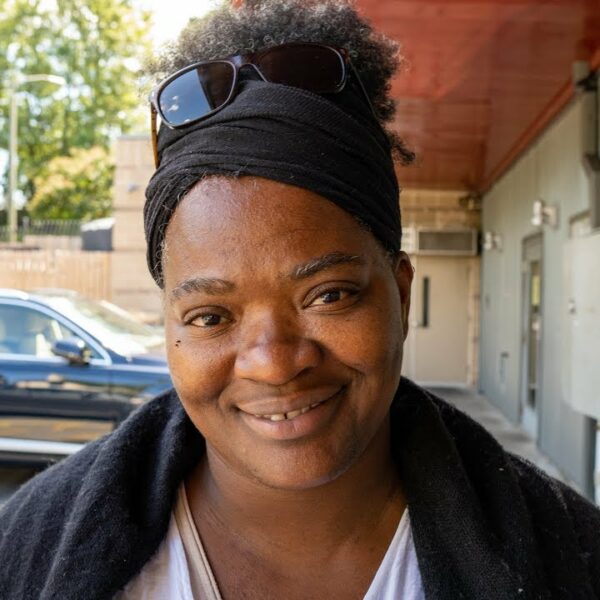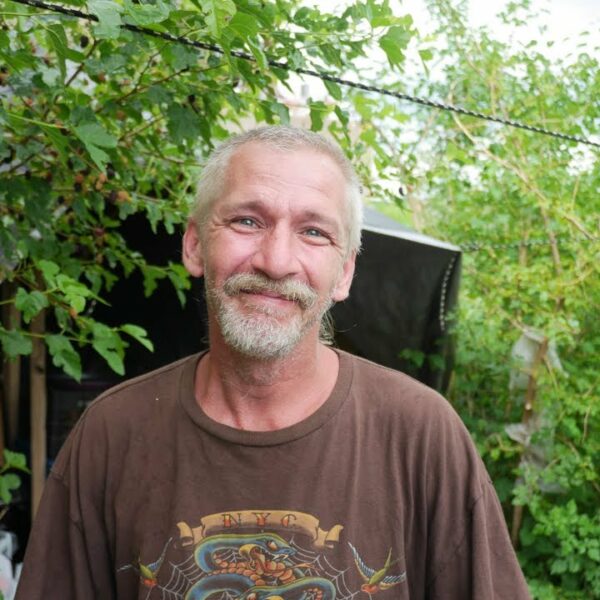Recently I was honored to be flown to the Netherlands to present at the 2014 International Fundraising Congress. As part of my honorarium I asked for two nights hotel in Amsterdam. As I normally do on most speaking trips, I fill my luggage with Hanes socks and plan on spending some time on the streets meeting new homeless friends. What happened this trip still blows my mind.
Over the last few years I have interacted with Luc Tanja several times. Luc is a street pastor in Amsterdam and we mostly connect when I am in the UK and on the same time zone. It wasn’t until the first night in the Netherlands that I truly understood what @Straatvogels was, and how I – and then even YOU are connected to the project.
Honored to meet and spend some time with @LucTanja @PeterStr_vogel @Youssef_Ams pic.twitter.com/ZMSiXTEooA
— Mark Horvath (@hardlynormal) October 17, 2014
A few years back I started We Are Visible, which at the time was built to empower homeless people to get online. You can find the original website here: http://old.wearevisible.com. The strategy of empowerment has changed to a peer network, but the basic theory that the more we can give people in poverty a voice online, the more we will affect real change and the more they will be able to better their own lives.
Around three years ago a few interns from creative agency BBH, inspired by my We Are Visible work, gave four homeless people staying at the New York City Rescue Mission cell phones and twitter accounts. The project was called “Underheard in New York” and was simply brilliant. The project received a lot of media in a very short period of time and one gentleman was even reunited with his daughter. Where this project could have gone further is continue support for the homeless men, but as I have said publicly, BBH is an agency – they are not support services. Their job was to make a splash of attention, and they did that good. Although I would have loved to see more being done on this project, BBH was probably not able to provide more! My hope was and always has been that homeless services would see how impactful social media is and how social media can help with support, isolation and other challenges street people face.
Well, Luc Tanja was paying attention and he did see the benefit of social media and started @Straatvogels [translation: street birds]. The project is now in four Netherlands cities and they’re growing. Luc states what is interesting is that each group of @Straatvogels is different and the movement is happening organically.
@Straatvogels not only is a direct-contact awareness campaign, it gives our friends sleeping rough a purpose and tangible social interactions. It’s also not a huge budget campaign and even the smallest nonprofit could start empowering homeless people with mobile tech and social media.
I love this short video interview with Luc. Luc shares about how a school girl interacted with one of (our cameraman) Peter’s (@PeterStr_vogel) tweets showing where he was sleeping rough after a rain.
NONPROFITS LISTEN UP:
Luc goes on to talk about how empowering consumer’s voices can be scary. He goes on to say “it is scary because they have strange voices and they give a lot of critique. They have a lot of critique and if you do something wrong they’ll put it right in your face. If you do something right they’ll put it right in your face too. But if you trust you are doing a good job, then why not let people show it”
As someone who has been in nonprofit communications for some time, and I am seeing this more everyday, there is a lot of good and bad being said about every single topic. If someone likes your work there will be someone who doesn’t. That’s how it is anymore! My point is don’t freak out if there is something bad written or said about you. Critique is good. Maybe there is some merit to what’s being said, and you need to make adjustments, and if there isn’t – just ignore it! But don’t above anything else stop empowering your staff, volunteers and clients from talking about you! That’s the only marketing that works anymore!
Luc goes on in this interview how both he and Peter would publicly disagree online. Some people would agree with Luc and some with Peter, but in the end they are still friends and still working together to help others. As Luc says, “if you know you are doing good – have confidence in that”.












